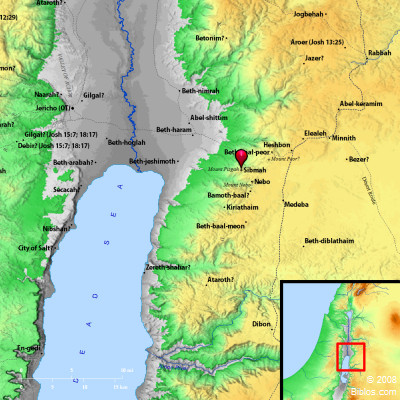Atlas  Sibmah and surrounding region Maps Created using Biblemapper 3.0 Additional data from OpenBible.info Occurrences Numbers 32:38 and Nebo, and Baal Meon, (their names being changed), and Sibmah: and they gave other names to the cities which they built.Joshua 13:19 Kiriathaim, Sibmah, Zereth Shahar in the mount of the valley, Isaiah 16:8 For the fields of Heshbon languish with the vine of Sibmah. The lords of the nations have broken down its choice branches, which reached even to Jazer, which wandered into the wilderness. Its shoots were spread abroad. They passed over the sea. Isaiah 16:9 Therefore I will weep with the weeping of Jazer for the vine of Sibmah. I will water you with my tears, Heshbon, and Elealeh: for on your summer fruits and on your harvest the battle shout has fallen. Jeremiah 48:32 With more than the weeping of Jazer will I weep for you, vine of Sibmah: your branches passed over the sea, they reached even to the sea of Jazer: on your summer fruits and on your vintage the destroyer is fallen. Encyclopedia SIBMAHsib'-ma. SEBAM a place in Moab |



